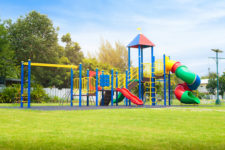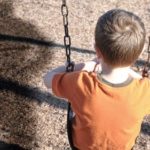40 Year Prison Sentence for Australia’s ‘Worst Paedophile’

Ruecha Tokputza has been described in court as “Australia’s worst paedophile”, and has been sentenced to 40 years imprisonment after pleading guilty to 50 charges including having sexual intercourse with a child under the age of 14, engaging in sexual intercourse with a child outside Australia and aggravated indecent assault,
South Australian District Court judge Liesl Chapman heard that for more than 6 years, Mr Tokputza sexually abused at least 13 children including one as young as 15 months old.
Some of his crimes were committed in Adelaide, others while he was visiting his birth place of Thailand.
He shared videos of the abuse online, admitted to indecent filming, as well as obtaining and producing child exploitation material outside Australia. He was found to have 12,500 images and 650 videos of child-exploitation material in his possession.
The court also heard that he told a Swiss man he could “hook you up” if he travelled to Bangkok.
Global paedophile ring
His arrest has helped global police agency Interpol to crack a global paedophile ring that’s resulted in dozens of other arrests in nearly 60 countries. So far police believe they have saved about 50 children from abuse, but they are yet to identify 100 more who have featured in seized photos and videos. The boys were lured by the men with food, internet access and football games.
‘Every parent’s nightmare’
While Mr Tokputza’s criminal defence lawyers produced a psychological report which suggested he had “prospects of rehabilitation,” Judge Chapman said Tokputza was fuelled by his delusional and aberrant belief that he was helping the children, that they enjoyed his abuse and that they loved him, but the hundreds of videos he recorded while abusing the children showed there was only pain, not love.
“You are every parent’s horror, you are a menace to the community,” she told Mr Tokputza, sentencing him to 40 years imprisonment, with a 28-year non-parole period.
Tough laws for child sex offenders
Two years ago, Australia introduced world-first legislation to stop those convicted of child sex offences from travelling overseas, in a bid to prevent offending abroad, in recognition of the fact that trans-global sex offending and sex exploitation is a massive problem, particularly throughout Thailand, Vietnam, Cambodia and other parts of South-East Asia.
Under the laws, 20,000 people on the Australian National Child Offender Register face an overseas travel ban and are not permitted to have an Australian passport. At the time, the Australian Government called the laws the “strongest crackdown ever,” saying that “no other country has taken such decisive and strong measures to protect children overseas.”
And, last year, in the wake of the Royal Commission into Institutional Responses to Child Sexual Abuse, New South Wales overhauled punishment for child sex offenders introducing tough new punishments, including a maximum life sentence for the crime of persistent child sexual abuse.
Is a national sex offenders register the answer?
Recent reports suggest that there are around 17,000 convicted paedophiles in Australia, and that many of the registered child sex offenders are living near schools, daycare centres, public parks and swimming pools.
Data also suggests that only the worst criminals are actively monitored with not nearly enough police resources to keep track of all the offenders, all the time.
The release of this data has coincided with renewed calls for an Australia-wide public sex offenders register, which could soon be a reality in the wake of the recent Federal Election.
Home Affairs Minister Peter Dutton first floated the idea in January, and the Coalition allocated $7.8 million to the project in April’s federal Budget.
The plan is that National Public Register of Child Sex Offenders will be based on the US model rolled out in the 1990s, and will include the details of thousands of convicted paedophiles, including their names, aliases, a photograph, as well as their date of birth, a physical description and the ‘general location and nature’ of their crimes.
While Mr Dutton has hailed the idea a mechanism for the “protection of our most vulnerable — our children,” the Law Council of Australia has some misgivings about the idea.
President Arthur Moses says a mandatory child sex offender registry could pose certain problems, such as “onerous reporting obligations like ongoing police monitoring of and involvement in a person’s activities, the risk of adverse community attention and vigilantism.”
Last year the Australian Institute of Criminology produced a report on public sex registries that found “while public sex offender registries may have a small general deterrent effect on first time offenders, they do not reduce recidivism”.
The report further outlined that even though the public tends to strongly support such initiatives, the evidence has shown that they do little to reduce fear in the community. And it also stresses that policy responses to sexual offending should be carefully considered and supported by evidence.







